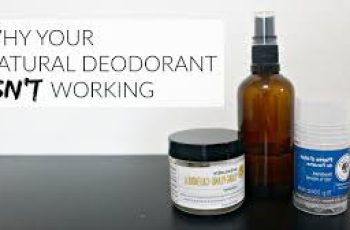
Can Vitamin C Serum and Rosehip Oil be Used Together?
There is no denying that rosehip oil is an ingredient in skincare, but it still seems a bit confusing. Many of you have written to me asking how to use it or if you should use it. Before we focus on today’s topic, I wanted to briefly cover the benefits of rosehip oil. Those of you who already know can skip to the next section.
What are the benefits of rosehip oil?
Rosehip oil is packed with nutrients that are beneficial to your skin. Here are some examples of the different benefits you can get from using rosehips in your daily life.
Linoleic Acid – A lesser-known acid, linoleic acid is a fatty acid that is extremely beneficial for your skin. It is very moisturizing, soothing irritation, and can fight acne and other skin blemishes. You will find that rosehip oil contains 60% linoleic acid, which provides a lot of moisture to the skin.
Antioxidants – Rich in antioxidants like vitamins C and E, which help fight free radical damage. Rosehip oil can protect against free radical damage such as pollution, central heating, bad weather, and other environmental aggressors. All of these things can damage your skin’s protective barrier, leading to issues like premature aging, dark spots, and dull complexion.
Vitamin A – More commonly known as a retinoid, vitamin A is a powerful antioxidant that fights any signs of free radical damage while increasing the turnover rate of your skin’s cells.
Now you know a little more about rosehip oil and its benefits for your skin. Now we can figure out how to combine it with one of our favorite antioxidants, vitamin C.
Which is better, rosehip serum or vitamin C serum?
This largely depends on the skin goals you’re trying to achieve with these formulas. For example, if you want to fight hyperpigmentation, dark spots, or uneven skin tone, a vitamin C serum is the best choice due to its high efficacy. If your skin lacks moisture and dehydration is your biggest concern, rosehip oil is best for your skin because the additional fatty acid extracts and nourishing vitamins help lock in moisture in your skin.
If you want to use both ingredients in your daily routine, I recommend alternating the times you use each formula. This is the easiest way for your skin to build up tolerance to new ingredients and avoid unwanted irritation and reactions. If you want my advice, I recommend using a vitamin C serum in your morning routine and then using rosehip oil in the evening to rejuvenate your complexion while you catch up on your beauty sleep.
Can you use rosehip oil after a serum?
Yes, you can use rosehip oil after a serum. Ideally, you should choose a product that is rich in hyaluronic acid or glycerin to lock in moisture. I also recommend using rosehip oil after moisturizing because the general rule when using skincare is to use the thinnest consistency. By layering these powerful formulas, you can replenish your skin with moisture and give it a chance to regenerate after a day of free radicals and other skin aggressors.
When should I incorporate rosehip oil into my daily routine?
I briefly touched on this in the previous section, but the best way to use skincare is to start with the lightest formulas, usually cleansers and exfoliating toners, and then work your way up to thicker formulas.
You’ll often find that products like serums and oils are more concentrated and require freshly cleansed skin to penetrate the underlying layers of the skin. You can then apply a moisturizer as this will create a protective barrier on the skin and provide additional protection so that other active ingredients can work without interference.
Does Rosehip Oil Cause Rash?
This is not the case because despite its name of “oil”, the main difference is that it is a dry oil, which means that it is absorbed into the skin very quickly. Unlike other oils that often clog pores and cause rashes such as pimples, blackheads and other blemishes, rosehip oil is safe to use.
If you find yourself belonging to the oily skin type that is prone to frequent rashes, do not hesitate to use rosehip oil as it has many benefits for the skin. However, I know that applying oils on oily skin types can be daunting, which is why it is always a good idea to seek the advice of a dermatologist or a trained professional.
Can I mix rosehip oil with hyaluronic acid?
Of course, I would even recommend such a mixture! The moisturizing effect of hyaluronic acid not only supports the properties of rosehip oil, but also strengthens the protection of the skin. The best way to achieve the effect is to cleanse the skin, apply a serum rich in hyaluronic acid, moisturize, and then apply rosehip oil. This locks moisture into the skin’s protective barrier and keeps your complexion at its healthiest.
I hope this blog post answered all of your questions about using rosehip oil and vitamin C serum together. My final advice is to remember that everyone’s skin is different and some ingredients may work wonders for your friend but may not produce the same results for you. No need to worry because with just a little extra work, you’ll soon have an effective routine that will give you your healthiest skin and a radiant complexion. Don’t forget: if you love skin, follow us on Instagram for more.


